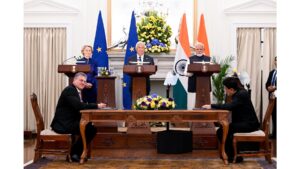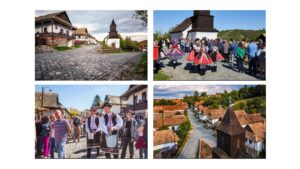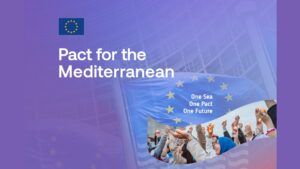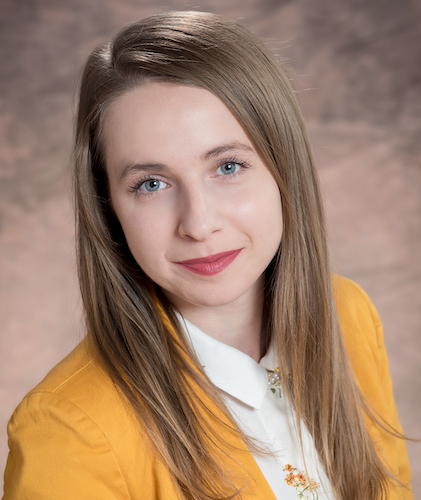When these days we think of support for science and scientific research, we think of modern technology and the creative-innovative processes it supports. Concepts such as artificial intelligence, robotics or smart technologies come to our mind. However, we often forget that one of the most fundamental and important contributors to scientific progress and innovation is language science, and indirectly language pedagogy. The very reason why that don’t think of them in this context is because they are so natural, such essential crutches.
Today, it is clear that the researcher of the 21st century speaks foreign languages at a high level, and it is essential to know and use the language of his or her discipline in a foreign language. What could be more natural than learning it in specialised language courses, from specialised language books, from specialised language teachers and then obtaining a specialised language certificate. Even more naturally, if one gets stuck in the learning process, one can pull a language dictionary off the shelf or type the word one is looking for into the online dictionary and, with the result found, to move on to the next step. Are all sciences really in such a fortunate position; are all sciences really backed up by specialised lexicography based on specialised linguistic research and its products, the dictionaries that support inclusion and communication?
There are disciplines that occupy a prominent place in specialised linguistics and lexicography, although the research and the resulting works are still insufficient. Examples include law, economics and engineering. Alongside them, there are some that have been neglected or even “abandoned” by linguistics. Of the latter, history is one of the most unfortunate in terms of foreign language lexicography. Science, the representatives of which have the opportunity to design and shape the image of our country on the international stage. To convey how we place ourselves in the historical palette of the world and of Europe, or to shed light on which processes led to decisions in the past, even to ones that are judged negatively today.
Of course, technical language is not only of paramount importance in terms of conveying results. Historical sources are a cornerstone of a historian’s work, and the knowledge of foreign languages is not only necessary for universal historical research. Due to our country’s past, a significant part of the sources of Hungarian history can also be read in foreign languages. Research shows that professionals researching the past may even need three to six different foreign languages for some topics. In addition, the fact that history is often taught in the target language in bilingual and minority schools and is one of the most frequently chosen target language matriculation exams cannot be neglected in this context.
As such, by neglecting the linguistic aspects of the language of history, we are not only leaving researchers and aspiring academics without support but also the students in these institutions. And learning a terminology without a dictionary is like trying to win a war without weapons. Given the complete lack of historical dictionaries and the under-researched nature of the subject, almost any new achievement in this field is a major achievement. What has long been taken for granted in the case of linguistic support for other disciplines is a revolutionary achievement in the case of history, a real innovation in supporting research and its publication.
Of course, we are only at the beginning of a long process. The first necessary step is to conduct a wide range of fundamental research into the complexity of the language of history, on which the lexicography can build. What we already know is that it is a special, complicated, hybrid language, which requires both historical lexicographic and specialised lexicographic work, and which differs from other languages in several important respects. On the other hand, it also seems to be increasingly clear which languages are most needed for research on the history of our country, besides English as a foreign language for publication. Alongside Latin, German is undoubtedly at the top of the list. Third, the need for historical period-specific studies and results emerges, which can only be based on the work of a multidisciplinary group of dictionary writers, supported by ongoing professional consultations.
Although we have seen that the aim is to create lexicographic works of a supportive nature that are already considered “ancient” in other disciplines, if we want to create effectively usable dictionaries that meet modern user expectations, we need to incorporate the latest research and modern technology into the process. In this case, language technology, among other things, has a key role to play, and so do digitisation and modern digital storage on the side of history.
The need for a history dictionary already emerged in the 19th century, and historians of the time were also hampered by the fact that they did not understand certain terms in the documents and chronicles. Although lexicographic work started then, the process, which was aimed exclusively at history, soon stalled and came to a halt. Today, in the 21st century, we need to pick up the thread again and create dictionaries that enable us to create, or attempt to create, a level playing field between the sciences in terms of linguistic support. So, if engineering researchers can easily find the term “radial piston hydraulic motor” in a foreign language in dictionaries, historians should not have to search any longer for “working nobleman, cannon cart, alliance of three emperors” or “mandatory final redemption with state compensation”.






